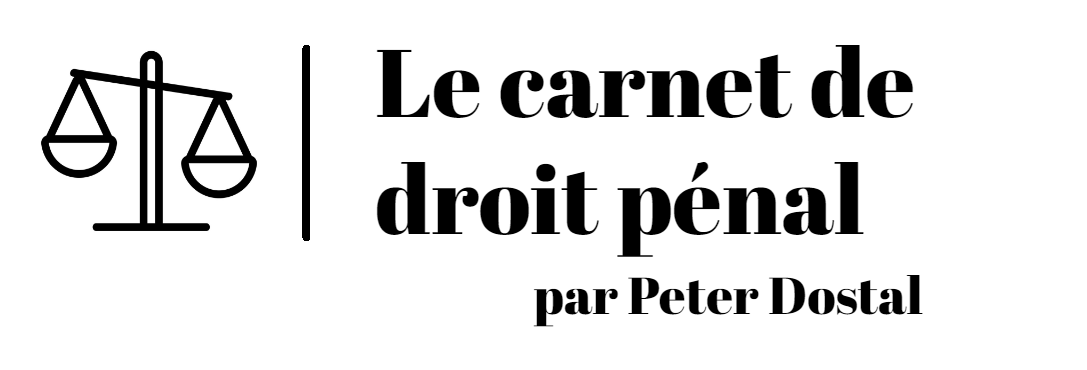« Intention » : différence entre les versions
| Ligne 315 : | Ligne 315 : | ||
{{Reflist|2}} | {{Reflist|2}} | ||
== | ==Intention des conséquences d'un acte== | ||
Il est établi depuis longtemps que « quiconque prévoit qu'une conséquence résultera certainement ou substantiellement certainement d'un acte qu'il accomplit pour atteindre un autre but, a l'intention de produire cette conséquence. »<ref> | |||
{{CanLIIRP|Buzzanga and Durocher|g181w|1979 CanLII 1927 (ON CA)|49 CCC (2d) 369}}{{perONCA-H|Martin JA}}{{Atp|383-4}} [CCC]<br> | {{CanLIIRP|Buzzanga and Durocher|g181w|1979 CanLII 1927 (ON CA)|49 CCC (2d) 369}}{{perONCA-H|Martin JA}}{{Atp|383-4}} [CCC]<br> | ||
{{CanLIIRP|MacKinlay|1npmx|1986 CanLII 111 (ON CA)|28 CCC (3d) 306}}{{perONCA-H|Martin JA}}<br> | {{CanLIIRP|MacKinlay|1npmx|1986 CanLII 111 (ON CA)|28 CCC (3d) 306}}{{perONCA-H|Martin JA}}<br> | ||
</ref> | </ref> | ||
Il s'agit d'une inférence et non d'une présomption.<ref> | |||
p. ex. {{CanLIIRP|Farrant|1xv59|1983 CanLII 118 (CSC)|[1983] 1 RCS 124}}{{perSCC|Juge Dickson}}<br> | |||
{{CanLIIRP|Seymour|1fr9z|1996 CanLII 201 ( | {{CanLIIRP|Seymour|1fr9z|1996 CanLII 201 (CSC)|[1996] 2 RCS 252}}{{perSCC|Juge Cory}} (5:0){{atL|1fr9z|20}}<br> | ||
</ref> | </ref> | ||
Son but est de déterminer l'intention de fait, et non de fixer une intention fondée sur le caractère raisonnable.<ref> | |||
{{supra1|MacKinlay}} | {{supra1|MacKinlay}} | ||
</ref> | </ref> | ||
Ainsi, il n'est pas nécessaire que l'acte de l'accusé ait pour but d'atteindre les conséquences pour « vouloir » ces conséquences. conséquences.<ref> | |||
{{CanLIIRx|Iyanam|fwb28|2013 ONSC 1091 (CanLII)}}{{perONSC|Code J}}{{atsL|fwb28|23| à 27}}<br> | {{CanLIIRx|Iyanam|fwb28|2013 ONSC 1091 (CanLII)}}{{perONSC|Code J}}{{atsL|fwb28|23| à 27}}<br> | ||
</ref> | </ref> | ||
L'accusé peut très bien ne pas vouloir les conséquences, mais néanmoins les « intentionner » lorsqu'il « prévoit que la conséquence résultera certainement ou substantiellement certainement de sa conduite »<ref> | |||
{{ibid1|Iyanam}}{{atsL|fwb28|26|, 27}}</ref> | {{ibid1|Iyanam}}{{atsL|fwb28|26|, 27}}</ref> | ||
Il n'est pas nécessaire qu'une « arrière-pensée » soit directement liée aux conséquences.<ref> | |||
e.g. {{ibid1|Iyanam}}{{atL|fwb28|22}}</ref> | e.g. {{ibid1|Iyanam}}{{atL|fwb28|22}}</ref> | ||
